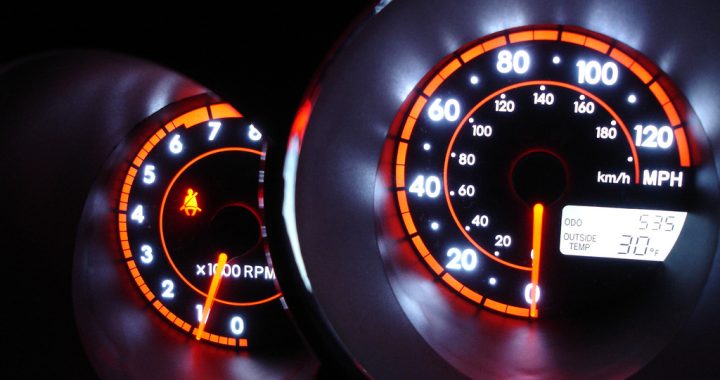(This post is written for alumni of LEAD 365, although all are welcome to read it.)
Years ago I had the strangest electrical problem with my car in which two gauges stopped working: my speedometer and tachometer. What was weird was that their “not working” needle positions were not down on the lower left where you’d think, but all the way around and down on the lower right-hand side of the gauge—just the opposite of where they should be.
I did the right thing and took my car to a mechanic, who was not able to get those gauges to work correctly or to register either my MPHs (miles per hour) or RPMs (revolutions per minute).
Then one day I inadvertently made an amazing discovery: I was revving my engine and when the engine got above 6,000 RPMs, all of a sudden that needle jumped up from that resting position on the far right lower part of the gauge and began to accurately show me how fast the engine was running in RPMs.
It took me a little while to realize that what had happened. At 6,000 RPMs, I had moved beyond the mid-point of the gauge causing the needle to be “pulled” back into giving an accurate reading. For the RPMs, the tachometer simply needed to get above 6,000. Once I made this discovery, I realize that I could fix the speedometer simply by driving over 100 MPH.
I know it was not legal, but I found a lonely stretch of highway and I got my Honda up over 100 MPH and voila! The needle jumped up and went right into giving me a normal measurement of my speed.
My gauges worked normally ever since.
Many of us think the only way we can be normal in our work lives is to have the speed cranked up over 100 miles an hour every day and have our RPM gauge reading in the red zone. The truth is that there are sections of the day and week and even seasons of the year in which that is necessary.
The problem comes when this becomes a lifestyle of living at an unsustainable pace. We stop sleeping well, we manage stress poorly, we find less joy in both work and home life, we become self-destructive in our attempts to escape, we harm our important relationships, and diminish our own effectiveness.
When is the last time you looked at your gauges? What are they telling you right now? Having good gauges are like doing preventative maintenance on a machine: in the short term it may look like it is slowing you up, but in the long run it is extending your life and your effectiveness.
And as a leader worth following, you are far more valuable than a machine.

